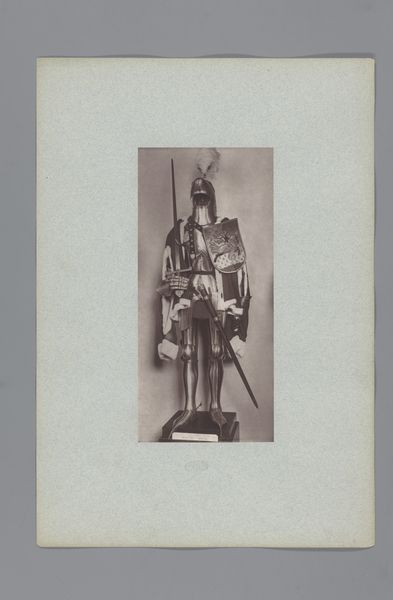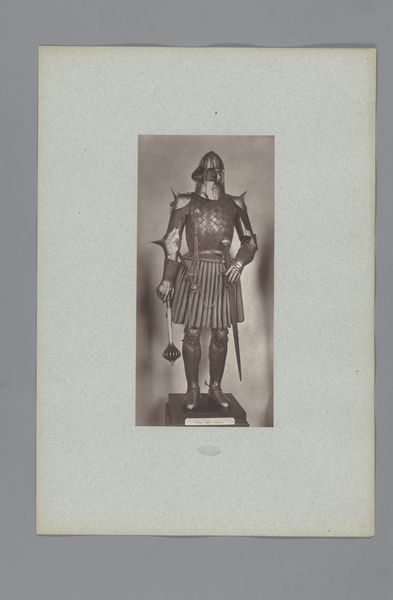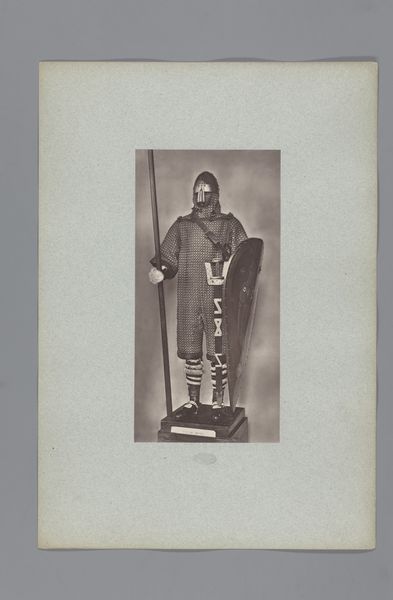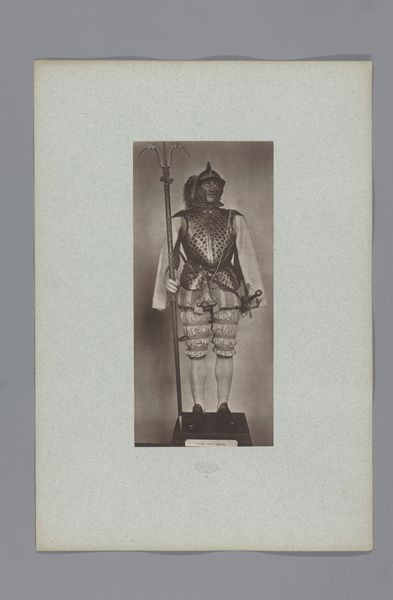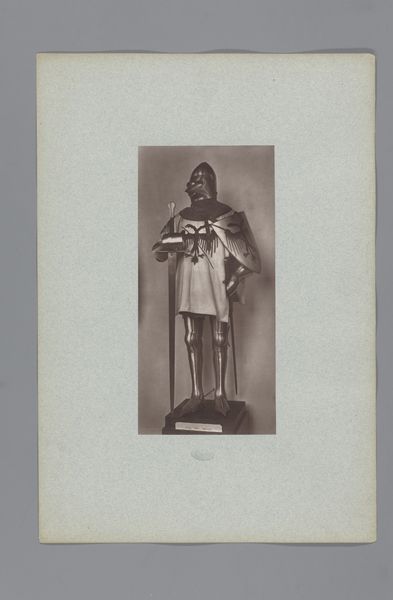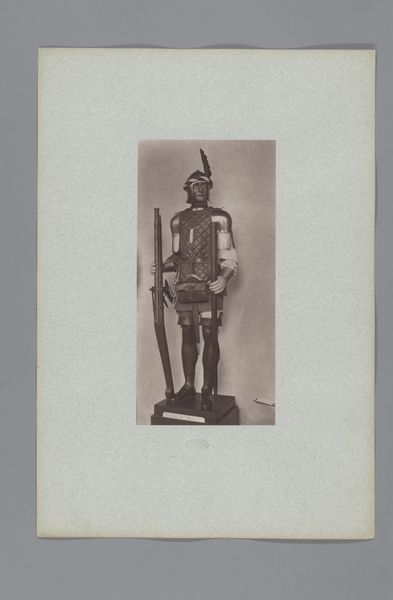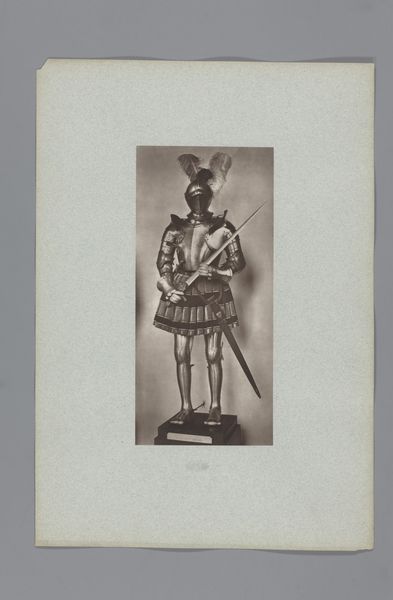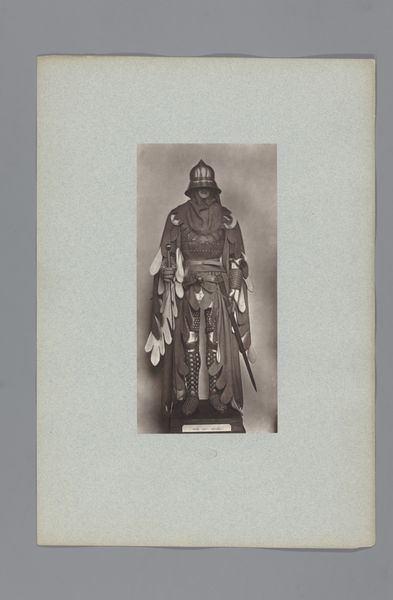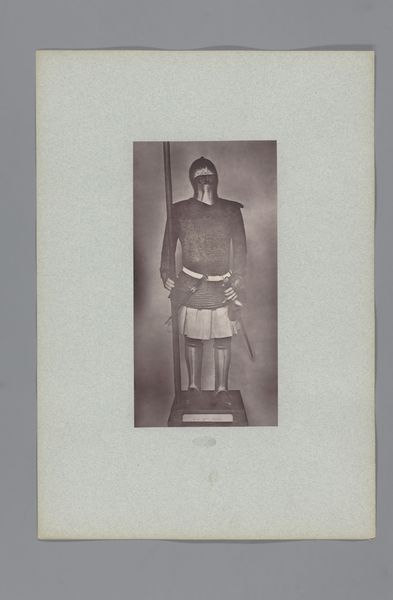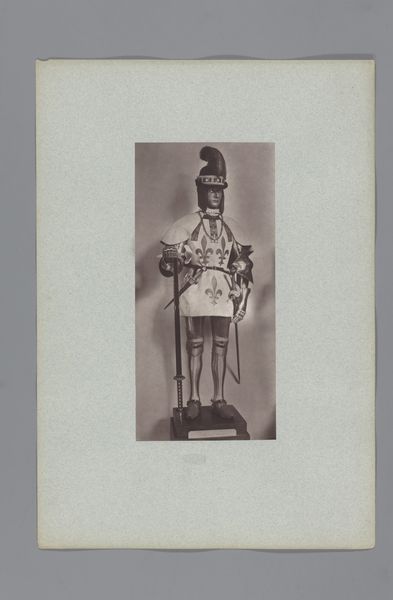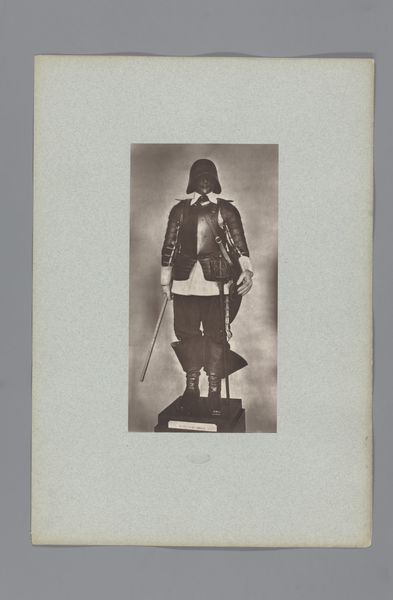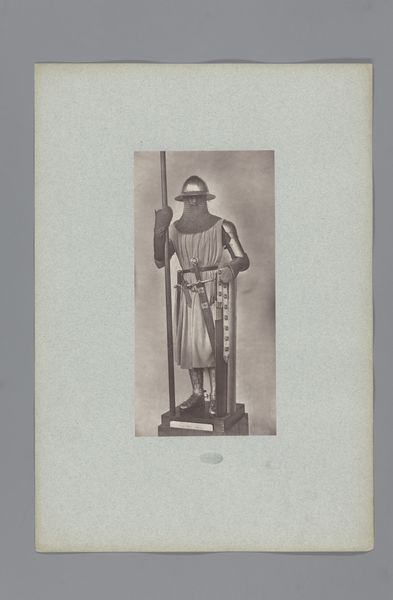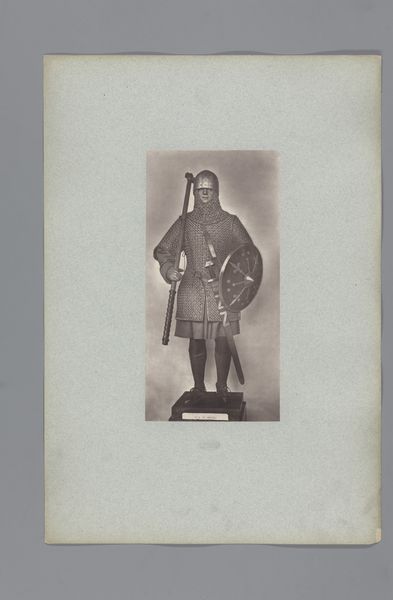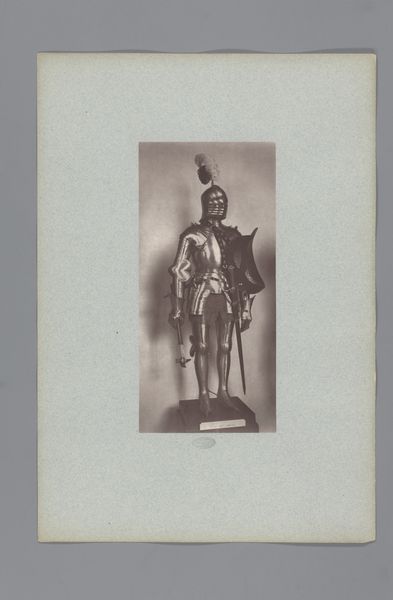
16de-eeuws harnas met geweer en steekwapen uit het leger van Hendrik III van Frankrijk, uit de collectie van het Musée d'Artillerie in Parijs before 1882
0:00
0:00
anonymous
Rijksmuseum
photography, gelatin-silver-print
#
portrait
#
medieval
#
photography
#
gelatin-silver-print
#
armor
Dimensions: height 272 mm, width 129 mm
Copyright: Rijks Museum: Open Domain
This sixteenth-century armor, complete with a gun and dagger, comes from the army of Henry III of France. Though the maker remains anonymous, this work speaks volumes about the intersection of craft, war, and class. The armor is wrought in steel – a testament to the blacksmith's skill in shaping this robust material into protective forms. The process involves heating, hammering, and meticulous fitting, demanding a deep understanding of metallurgy and anatomy. Notice the subtle curves and articulated joints, enabling mobility while ensuring defense. The production of such armor was a significant industry, supporting a skilled workforce. It reflects not only the military strategies of the time but also the social structure. Armor like this wasn't just about protection; it was a display of status, indicating the wearer's wealth and power. Looking at the armor, we're reminded that even utilitarian objects can embody exceptional craftsmanship, challenging our notions of art and labor.
Comments
No comments
Be the first to comment and join the conversation on the ultimate creative platform.
